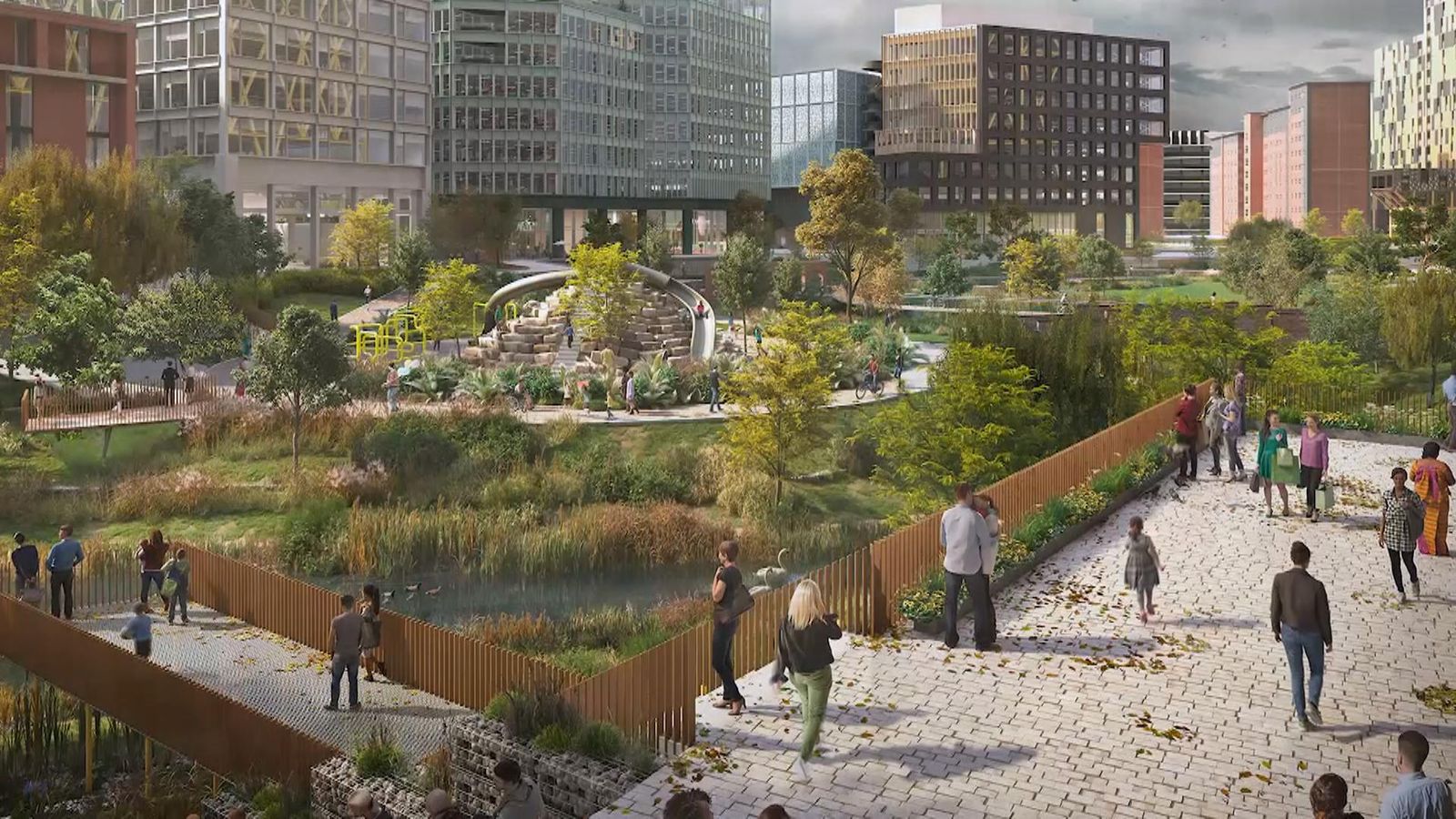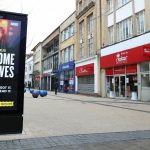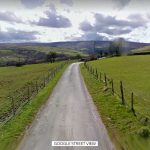Manchester is getting a “green lung” in the shape of its first city park in 100 years.
Mayfield Park sits on previously uninhabitable land, spanning 6.5 acres of a site that was once the epicentre of the city’s textiles industry.
To help bring the park to life, ecologists have uncovered parts of the River Medlock that had been buried under a concrete plate for decades. They hope flowing water will aid the return of species that were once native to Manchester.
“It was quite limited, quite a low ecologically valuable site,” explained senior ecologist Jenny Ross.
“We’re putting specific measures in to hopefully attract some important birds from Manchester such as Kingfishers and Black Redstarts.
“We also will have provisions for roosting bats on the site who will use the river corridor for commuting as well as foraging, and also hopefully some bees and butterflies throughout the site as well.”
Some 13 Victorian wells were discovered, leading to hopes that these can provide a fully sustainable source of irrigation so that the park does not have to rely on the treated mains water supply.
COVID-19: Boris Johnson ‘reserves possibility’ of further restrictions and says govt is following the data ‘hour by hour’
Queen to stay at Windsor for Christmas and not travel to Sandringham
Levelling Up: Areas with high levels of deprivation suffered the most from austerity
Economic growth and climate change
The Environment Agency says the park can act as a flood basin for a typically wet city.
“This river was locked away for a hundred years, now it’s been opened up,” said Mark Easedale, environment manager for Greater Manchester at the Environment Agency.
“In the past when it rained, the water within this river would’ve risen in this concrete channel and it would’ve gone down and had a flooding impact potentially downstream.
“Now it’s been designed to flood, the water will come out of this channel into the wetland areas and help prevent flooding downstream.
“We all know that we have to tackle the climate emergency, but also we need to support economic growth following the pandemic. This is an example of how we can do it together.”
Regeneration project
When it opens next spring, the site will include homes, offices and retail and leisure facilities. It is part of a £1.5bn regeneration of Manchester’s Mayfield district.
Mayfield Park’s sequence of spaces promises visitors a truly unique experience that cannot be replicated. The project’s Delivery Director Mike Harrison explained that almost all the materials used in building the park have been salvaged from the original site.
“When you come to Mayfield, the products that we’ve saved and the materiality is so unique because we took it from the ground you can’t replace it. So no one can recreate it. When you come to Mayfield, it is only Mayfield.”
As well as opening up the watercourse, 140 mature trees and 120,000 plants are going into the park before the end of the year, ending three decades of dereliction.






















